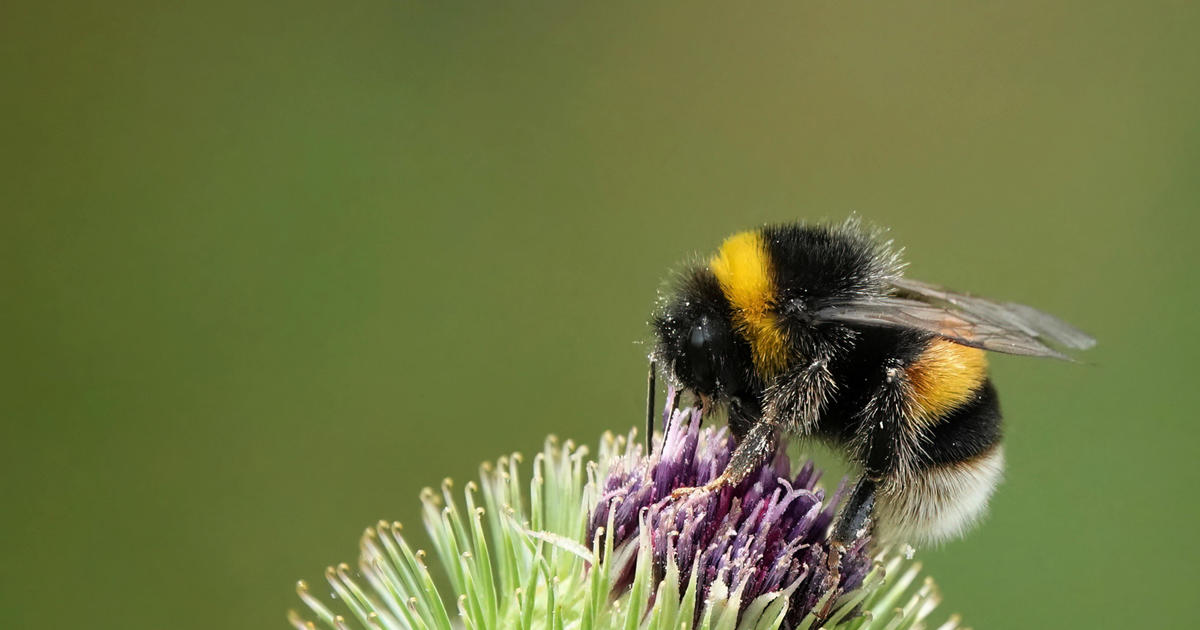FDA moves to pull common drug used by pork industry, citing human cancer risk
A common veterinary drug used by American pork farms could soon be pulled from the market, the Food and Drug Administration announced Tuesday, due to concerns that it could pose a cancer risk in humans who eat hot dogs, sausages and other foods made from animals given the drug.
The FDA's move comes nearly a decade after the agency first began a renewed probe into safety concerns over the drug, carbadox, which is added to feed given to pigs to combat infections and help fatten them up.
Pork contaminated with "carcinogenic residues" from the drug could wind up in foods like hot dogs and lunchmeat, the agency has said, though cautioning that it was "not recommending that people make changes in their food choices" while it worked to pull the drug.
"Potential cancer risks are based on an assumed lifetime of consuming pork liver or other pork products containing carbadox residues," the FDA said in a 2016 news release announcing its first formal steps toward taking the drug off the market.
Fears that carbadox could cause cancer in humans date back years. Around the time of its approval, in 1998, the FDA's initial concerns were mitigated by a strategy drawn up to test edible parts of pigs that had been given carbadox.
However, the agency says data now shows that the method is "inadequate" to measure the cancer risk posed by pigs fed the drug. Those findings were presented at a hearing last year.
It is not clear why FDA did not move to pull carbadox sooner after its 2016 warning, which came years after other countries moved to curb use of the feed ingredient.
"This action itself arrived long overdue. The European Union and Canada prohibited use of carbadox in 1999 and 2006, respectively, due to concerns about residues and the safety of workers handling the drug," advocacy groups wrote in a 2022 letter to the agency, decrying "craven industry efforts to put off the inevitable" ban.
An FDA spokesperson declined to comment on the agency's timeline in pulling carbadox.
"Because the FDA first made public its concern regarding the adequacy of the 1998-approved method with regard to carbadox in 2016, the swine industry has had the opportunity to consider and mitigate potential impacts of this action for several years," the agency said Tuesday in a post about the drug.
The drug's manufacturer, Phibro Animal Health Corporation, touts carbadox as "the industry standard" for antimicrobials used to combat bacteria and fatten pigs. Branded as Mecadox, the drug is added to feed used in pork farms across the country.
Phibro said Tuesday that it was "extremely disappointed" in the FDA's move and accused the agency of not acting "based on solid science."
"While Phibro has continuously offered to meet with FDA to discuss the regulatory method and has offered viable alternative methods currently being used in other countries, it is clear that, instead, the FDA is ignoring the long history of safety that Phibro has established and reaffirmed through its most recent studies," the company said in a news release.
Pulling carbadox could result in millions of lost pigs, the National Pork Producers Council claimed in a 2022 letter to the agency. That could amount to $5.3 billion in costs over the next decade, largely driven by infections of pork by bacteria like salmonella and E. coli.
"It is a vital product to treat gastrointestinal disease (swine dysentery) in young pigs, improving their health and welfare. With few interventions available, Carbadox is essential," the council said in a statement Tuesday.
Another potential downside of pulling carbadox: veterinarians could turn to other antibiotics that might end up spawning more drug-resistant germs that threaten humans, the industry says.
"Carbadox is not used in human medicine. So it has the important benefit of not potentially contributing to antimicrobial resistance in humans. If carbadox is taken off the market, hog farmers will be forced to treat their pigs with antibiotics that are important to fighting human infections," the council's Anna Forseth said at the FDA's 2022 hearing.
Phibro could have one more chance to persuade the FDA not to pull its carbadox approvals.
The drugmaker can submit a request for a hearing to the agency raising "a genuine and substantial issue of fact" according to the FDA's federal register notice. The FDA's deadline for the request is Dec. 7.
In an email, Phibro declined to comment on whether it planned to request another hearing from the FDA.
"Phibro will take appropriate action and next steps to continue to defend swine producers' ability to use Mecadox to protect the health and welfare of their animals," the company said.



